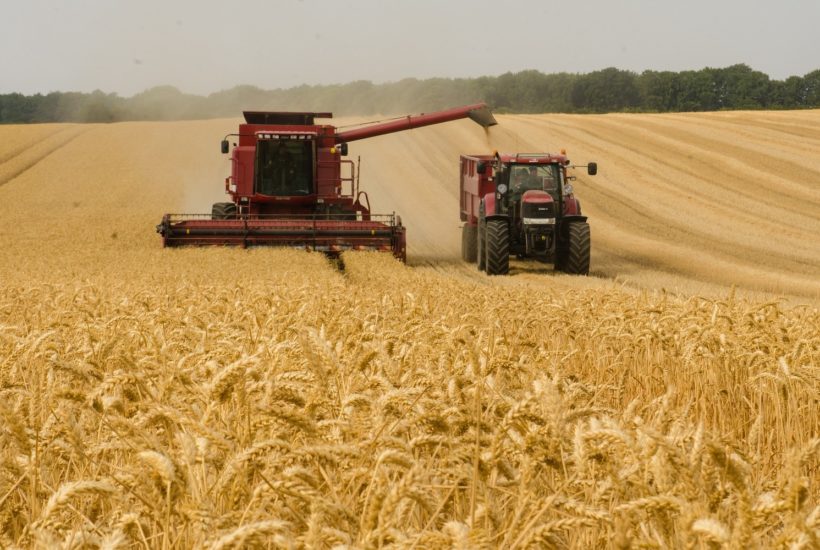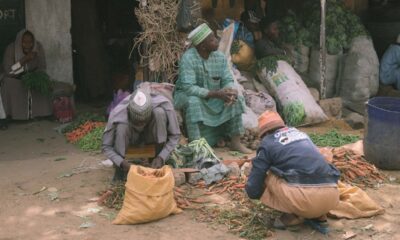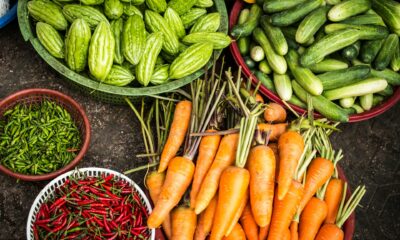Africa
How the Ministry of Agriculture is trying to help farmers in Burkina Faso
Burkina Faso is one of the African countries affected by insufficient rainfalls. Due to the global situation and the lockdown policies, the food insecurity in the country is increasing. That is why the Ministry of Agriculture is trying to support the agricultural sector and to raise awareness on the importance of agriculture insurances. A workshop was organized this week on the subject.

This Thursday, August 6th, 2020 in Koudougou, the Ministry of Agriculture, in collaboration with the Insurance and Reinsurance Company (SONAR), initiated a sensitization workshop on the implementation of agricultural insurance in Burkina Faso.
The objective of this meeting was to encourage agricultural stakeholders to adhere to the agricultural insurance mechanism in Burkina Faso. The pilot phase of this project focuses on maize production and concerns the Boucle du Mouhoun, Center-West and East regions.
If you want to find more about the difficulties of the agricultural sector in Burkina Faso and how the Ministry of Agriculture is trying to support producers, download for free the Born2Invest mobile app. Read the latest economic news from around the world and be on top of everything that matters to you.
Agricultural insurance aims to protect producers against the risk of crop losses due to insufficient rainfall or drought
The Ministry of Agriculture has indeed committed itself to a global vision of agricultural and food risk management through the Agricultural and Food Risk Management Project (PRAA) created in 2019.
The vision of the PRAA is to secure agro-sylvo-pastoral production capital and strengthen the resilience of stakeholders for sustainable food security. Furthermore, in the implementation of the project, a pilot phase of the “agricultural insurance” component on maize production is planned. This pilot phase concerns three regions: the Boucle du Mouhoun, the Center-West and the East.
In view of the specific nature of the “agricultural insurance” mechanism, it was important for the Ministry of Agriculture, in partnership with the National Insurance and Reinsurance Company (Sonar-IARD), to provide information to producers and raise their awareness of how the mechanism works.
At the opening of the meeting, the Secretary General of the Center-West region, Daouda Traoré, invited participants to follow the communications and to subscribe massively to agricultural insurance for the achievement of food security in Burkina Faso.
The producers in Burkina Faso welcomed the initiative of the Ministry of Agriculture
With this training, the actors of the agricultural world will become familiar with the “agricultural insurance” system. It will involve presenting the agricultural insurance mechanism to producers, explaining the content of the agricultural insurance product for maize, explaining the process for taking out agricultural insurance and informing producers of the compensation process in the event of a claim.
After a few explanations with examples to support the merits of the initiative, some heads of farmers’ organizations appreciated the approach taken by the Burkinabe government through the Ministry of Agriculture. For the Secretary General of the Peasants Confederation of Faso (CPF), Marc Gansonré, “the producers welcome this initiative with joy”.
For the participants, the implementation of agricultural insurance responds to a plea made on several occasions by farmers’ organizations to support producers in coping with the effects of climate change. This could galvanize production and strengthen the productive capacities of farms. “Agricultural insurance gives a guarantee to producers to go to financial institutions in order to have credits for production,” added CPF Secretary General Marc Gansonré.
For this pilot phase, subscriptions are open in the Center-West region until August 14th, for the sum of $11.15 (6,193 FCFA) per hectare.
__
(Featured image by stanvpetersen via Pixabay)
DISCLAIMER: This article was written by a third party contributor and does not reflect the opinion of Born2Invest, its management, staff or its associates. Please review our disclaimer for more information.
This article may include forward-looking statements. These forward-looking statements generally are identified by the words “believe,” “project,” “estimate,” “become,” “plan,” “will,” and similar expressions. These forward-looking statements involve known and unknown risks as well as uncertainties, including those discussed in the following cautionary statements and elsewhere in this article and on this site. Although the Company may believe that its expectations are based on reasonable assumptions, the actual results that the Company may achieve may differ materially from any forward-looking statements, which reflect the opinions of the management of the Company only as of the date hereof. Additionally, please make sure to read these important disclosures.
First published in lefaso.net, a third-party contributor translated and adapted the article from the original. In case of discrepancy, the original will prevail.
Although we made reasonable efforts to provide accurate translations, some parts may be incorrect. Born2Invest assumes no responsibility for errors, omissions or ambiguities in the translations provided on this website. Any person or entity relying on translated content does so at their own risk. Born2Invest is not responsible for losses caused by such reliance on the accuracy or reliability of translated information. If you wish to report an error or inaccuracy in the translation, we encourage you to contact us.

-

 Cannabis3 days ago
Cannabis3 days agoGermany Moves to Tighten Medical Cannabis Rules Amid Surge in Private Use
-

 Business1 week ago
Business1 week agoWhy the iGaming Industry Offers Some of the Best ROI for Affiliate Marketers
-

 Impact Investing10 hours ago
Impact Investing10 hours agoSustainable Finance Faces Hurdles as Green Asset Ratio Reforms Fall Short of Full Transparency
-

 Africa1 week ago
Africa1 week agoBLS Secures 500 Million Dirhams to Drive Morocco’s Next-Gen Logistics Expansion
























